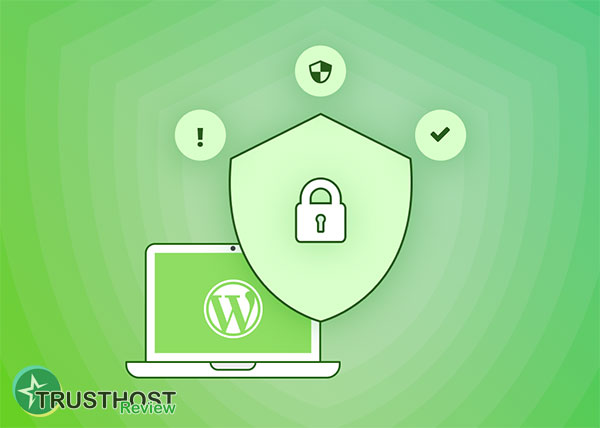Managed vs. Unmanaged Hosting: Which One Is Right for You?
Picking a hosting plan can feel overwhelming. Beyond shared, VPS, and dedicated options, you face another fundamental choice: managed or unmanaged? This decision isn't just about price; it's about your time, technical expertise, and peace of mind. Getting it right is crucial for ensuring optimal site speed, robust security, and a scalable foundation for your online business.

This guide will provide a clear, comprehensive breakdown of managed and unmanaged hosting, helping you confidently choose the path that aligns with your skills, budget, and business goals.
What is Unmanaged Hosting? The DIY Approach
Unmanaged hosting is exactly what it sounds like: you rent the server hardware and network connection, but everything else is up to you. Think of it as leasing an empty office space. You get the room, the electricity, and the plumbing, but you're responsible for furnishing it, installing security systems, and fixing anything that breaks inside.
With unmanaged hosting, you are the system administrator. Your responsibilities include:
- Operating System (OS) Installation: You choose and install the OS (e.g., CentOS, Ubuntu, Windows Server).
- Software Installation: You install the web server (Apache, NGINX), database software (MySQL, PostgreSQL), and any other applications you need.
- Control Panel Installation: If you want a control panel like cPanel or Plesk, you must install and configure it yourself (and often pay for the license).
- Security: You are solely responsible for server hardening, installing firewalls, running malware scans, and applying security patches.
- Maintenance & Updates: You must keep all software, from the OS to your applications, updated to patch vulnerabilities and ensure compatibility.
- Backups: You need to set up and manage your own backup solution.
Who Should Choose Unmanaged Hosting?
Unmanaged hosting is best suited for a specific type of user:
- Experienced Developers & System Administrators: If you live and breathe command lines and have deep knowledge of server management, unmanaged hosting offers ultimate control.
- Businesses with a Dedicated IT Team: Companies with in-house experts can leverage the cost savings and customization of unmanaged servers.
- Users with Highly Specific Needs: If you need to run custom applications or configure a unique server environment that a managed host won't support, unmanaged is your only option.
Pros: Lower cost, complete control and flexibility.
Cons: Requires significant technical expertise, is extremely time-consuming, and you bear all responsibility for security and uptime.
What is Managed Hosting? The 'Done-For-You' Service
Managed hosting is the all-inclusive resort of the web hosting world. You don't just get the server; you get a team of experts to manage it for you. They handle the technical heavy lifting so you can focus on what you do best: running your website or business.
With a managed hosting plan, the provider takes care of:
- Server Setup & Configuration: The server is pre-configured with an optimized stack for performance and security.
- Proactive Support: The support team doesn't just wait for you to have a problem; they actively monitor the server and can often fix issues before you even notice them.
- Automated Backups: Daily (or even more frequent) backups are standard, with easy one-click restore options.
- Enhanced Security: Managed hosts implement robust firewalls, regular malware scanning, and automatic patching to keep your site secure.
- Performance Optimization: They often include premium features like built-in caching, Content Delivery Networks (CDNs), and optimized server software to ensure fast website hosting.
Who Should Choose Managed Hosting?
Managed hosting is the best hosting for small business owners, agencies, and anyone who values their time over granular server control.
- Small Business Owners & Entrepreneurs: Your focus should be on marketing, sales, and customer service, not on applying kernel patches.
- Website Owners Without Technical Skills: If you're not a developer, managed hosting provides the peace of mind that an expert team has your back.
- Agencies & Freelancers: When you're managing multiple client sites, the reliability, security, and support of managed hosting are non-negotiable.
Pros: Superior support, enhanced security, performance optimization, saves you time.
Cons: Higher cost, less control over the server environment.
Side-by-Side Comparison: Managed vs. Unmanaged
| Feature | Managed Hosting | Unmanaged Hosting |
|---|---|---|
| Server Management | Handled by the hosting provider | Your full responsibility |
| Technical Support | Comprehensive, 24/7 expert support for all server-related issues | Limited to hardware and network issues only |
| Security | Proactive monitoring, firewalls, malware scans, automatic patches | Completely DIY; you must configure and manage all security |
| Performance | Optimized server stack, built-in caching, CDN often included | Dependent on your own configuration skills |
| Cost | Higher monthly fee, but predictable costs | Lower monthly fee, but potential for high hidden costs (time, consultants) |
| Control & Flexibility | Less control; you can't change core server software | Total root access and complete control |
| Ideal User | Business owners, agencies, non-tech users | System administrators, experienced developers |
Key Differences: A Deeper Look
The True Cost of Hosting
At first glance, unmanaged hosting seems like the clear winner for affordable hosting. A $20/month unmanaged VPS looks much better than a $100/month managed plan. However, this comparison is misleading. You must factor in the value of your time. If you spend 10 hours a month managing your server (a conservative estimate for maintenance, updates, and troubleshooting), and you value your time at $50/hour, you've just spent $500 in time on your 'cheap' hosting. Suddenly, the $100 managed plan looks like a bargain. If you have to hire a system administrator to fix a problem, that could cost hundreds or thousands of dollars, wiping out any initial savings.

Security: Peace of Mind vs. Constant Vigilance
Website security is not a 'set it and forget it' task. New threats emerge daily. With unmanaged hosting, you are the sole defender of your server. You need to stay on top of security bulletins, configure complex firewall rules, and know how to respond if a breach occurs. With managed hosting, you have a dedicated security team working around the clock. Providers like Kinsta or WP Engine have sophisticated systems to block brute-force attacks, detect malware, and apply 'virtual patches' even before official software updates are released. This proactive security is one of the most valuable features of managed hosting.
Performance and Site Speed
A fast website is essential for user experience and SEO. While you can build a high-performance server on an unmanaged plan, it requires expert knowledge of caching technologies (Varnish, Redis), web server configuration (NGINX vs. Apache), and database optimization. Managed hosting providers build their entire infrastructure for speed. They use premium hardware, fine-tuned software stacks (like LiteSpeed), and integrate services like CDNs and server-level caching by default. This means you get a blazing-fast website right out of the box, without needing to become a performance tuning expert.
Making the Right Choice: Real-World Scenarios
Scenario 1: Sarah, the E-commerce Store Owner
Sarah runs a successful online boutique selling handmade jewelry. Her expertise is in product design and marketing. She needs her website to be fast, secure, and always online, especially during peak shopping seasons. For Sarah, choosing unmanaged hosting would be a disaster. The time spent learning server administration would be time taken away from growing her business. Managed hosting is the clear choice. It provides the reliability and security she needs, and the expert support gives her peace of mind.
Scenario 2: Alex, the Freelance Developer
Alex is building a custom Python application for a client. The app has very specific dependencies and requires a non-standard server configuration. He needs full root access to install custom libraries and fine-tune the environment. For Alex, a managed host would be too restrictive. Unmanaged hosting is the perfect fit. It gives him the blank slate and complete control he needs to build and test his application effectively.
Scenario 3: Creative Solutions Inc., the Web Design Agency
This agency manages 30 WordPress sites for various clients. Uptime and security are paramount to their reputation. While their team is tech-savvy, they aren't server administrators. Dealing with a hacked client site or server downtime would be a nightmare. Managed WordPress hosting is essential for them. It allows them to offer clients top-tier performance and security without the overhead of hiring a dedicated sysadmin. Features like staging sites and easy backups streamline their workflow and keep clients happy.
Conclusion: Invest in Your Focus
The choice between managed and unmanaged hosting boils down to a simple question: Where is your time best spent?
If you are a technical expert who needs absolute control and enjoys the challenge of server management, unmanaged hosting offers unparalleled flexibility and a lower sticker price.
However, for the vast majority of website owners, small businesses, and agencies, managed hosting is a strategic investment. The higher monthly fee buys you time, expertise, security, and performance. It frees you from the role of a system administrator and allows you to focus on what truly matters—growing your business.
















